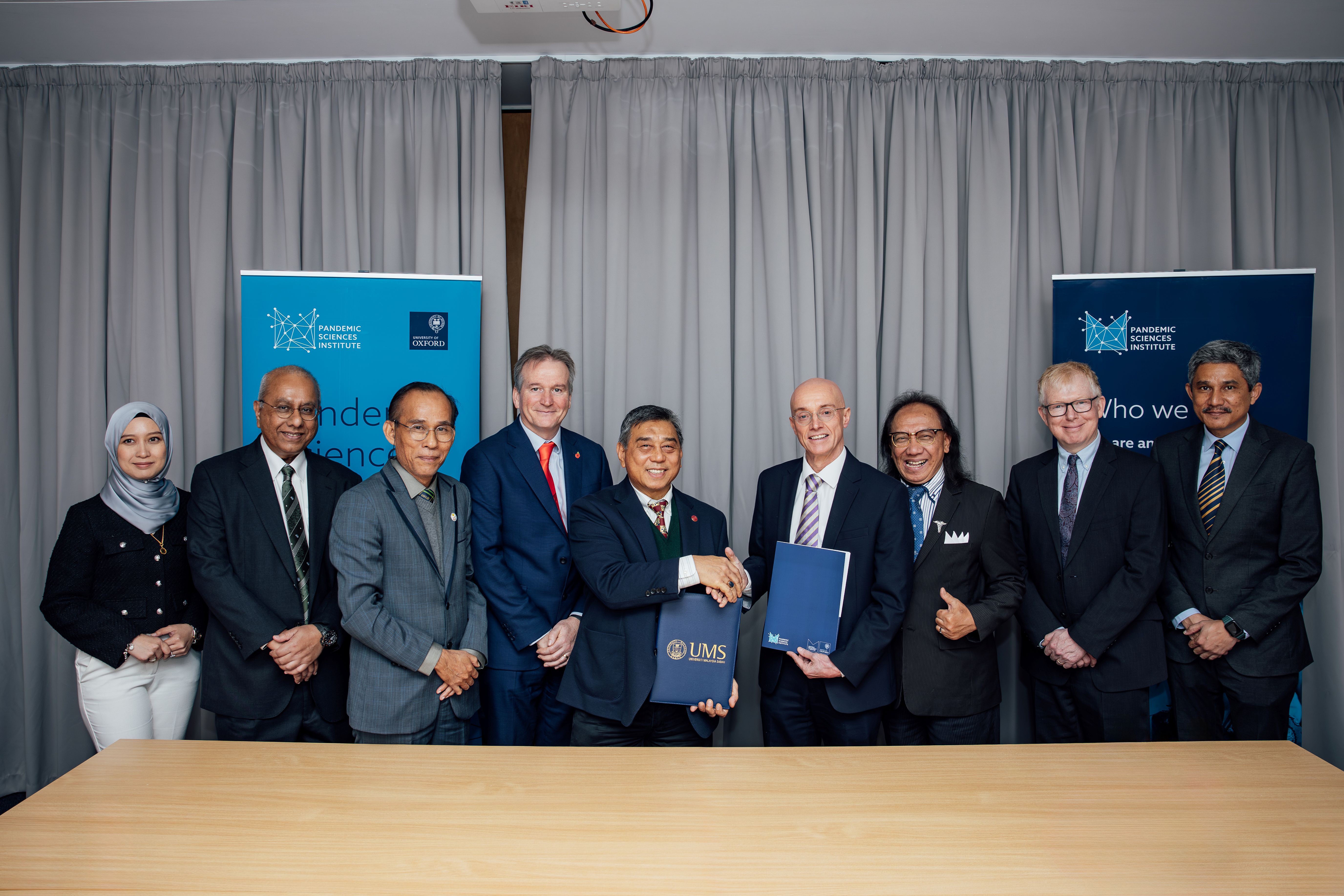 Universiti Malaysia Sabah (UMS) and the Pandemic Sciences Institute (PSI) of the University of Oxford have embarked on a groundbreaking partnership, marking a pivotal moment in their ongoing collaboration.
Universiti Malaysia Sabah (UMS) and the Pandemic Sciences Institute (PSI) of the University of Oxford have embarked on a groundbreaking partnership, marking a pivotal moment in their ongoing collaboration.
A Memorandum of Understanding (MoU), signed this month, formalizes their commitment to advancing research, educational exchanges, and joint initiatives in pandemic sciences.
These efforts aimed at making a lasting impact on global public health.
The partnership will drive research focusing on infectious diseases using a "living laboratory" approach through the establishment of the Zoonotic and Vector-Borne Disease Living Lab at UMS.
This pioneering project will provide vital insights into the infectious diseases impacting biodiversity-rich regions in Malaysia, contributing valuable data and findings to the understanding of international community on emerging health threats.
Through this collaboration, UMS and PSI are poised to strengthen the scientific foundation for pandemic preparedness, fostering innovative research and developing strategies that address the evolving risks of infectious diseases worldwide.
On 8th November 2024, PSI colleagues welcomed UMS delegation, for a roundtable discussion, officially launching the partnership. Vice Chancellor of UMS, Professor Datuk Dr. Kasim Hj. Mansor highlighted the transformative potential of the partnership.
“Through this MoU, we are building a foundation for health security that brings global resources directly to Universiti Malaysia Sabah.
“This partnership signals our commitment to public health as a shared global responsibility and places Sabah as an active contributor in the fight against infectious diseases,” he said.
Kasim also emphasised that addressing infectious diseases is central to fulfilling Sabah's healthcare agenda and advancing the region’s mission to improve lives and universal well-being.
As part of the visit, UMS colleagues toured the laboratory under the supervision of Professor Miles Carroll, seeing first-hand the current research activities.
Professor Miles, a PSI researcher and Professor of Emerging Viruses stated that working with experts from UMS and conducting serological surveillance in communities within regions high in biodiversity is essential.
“We now have an opportunity to study the immunological footprints left behind by other emerging viruses that can spillover from their natural animal reservoirs into humans.
“This new partnership will ensure we can conduct further surveys in rural and forest communities in Malaysian Borneo, giving us a small piece of vital intelligence into the larger environmental picture,” he said.
This partnership shall also bring together PSI’s expertise in pandemic sciences with commitment from UMS in establishing a state-of-the-art clinical research institute in Sabah.
The joint initiative will serve as an opportunity to spearhead the development of reliable, rapid, and mobile diagnostic tools for infectious diseases as a critical advancement in managing emerging viruses.
Beyond technological innovation, this partnership emphasizes the study on Sabah’s rich biodiversity in the effort to cultivate a new generation of biomedical scientists equipped to address the evolving challenges of infectious diseases.
Together, UMS and PSI are set to make transformative strides in the fight against infectious diseases, marking a significant boost to regional and global health resilience.
From UMS, the MoU signing event was also attended by Professor Ir. Dr. Rosalam Hj. Sarbatly, Deputy Vice Chancellor of Research and Innovation; UMS Registrar, Luqman Ridha Anwar, Dean of Faculty of Medicine and Health Science (FMHS), Datuk Dr. Mohd Yusof Hj. Ibrahim; and FMHS academician, Professor Dr. Kamruddin Ahmed and Assoc. Prof. Dr. Fatimah Ahmedy.